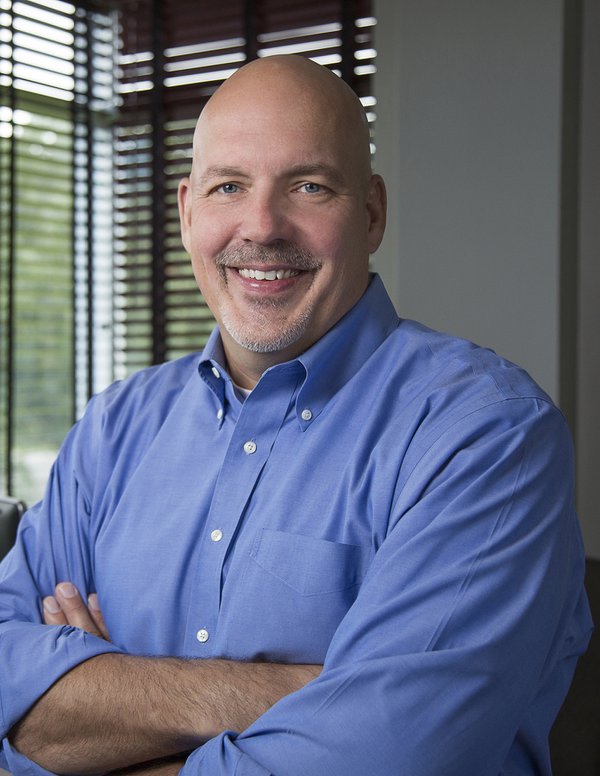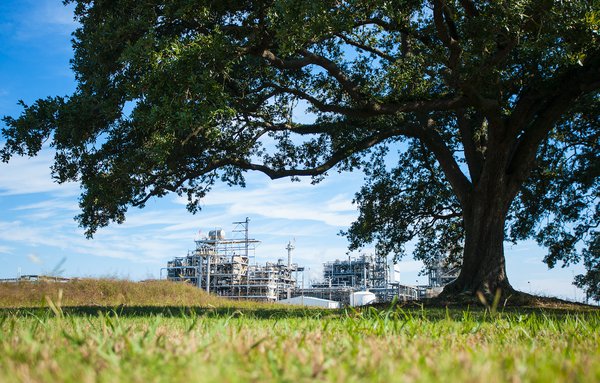Urethane Blog
BASF’s Geismar GM Profile
October 1, 2020
BASF’s Lebold leading Geismar site through expansion, pandemic
by Andrew White
October 1, 2020
BASF’s Jerry Lebold loves to restore old cars and motorcycles, and he attributes this passion to his father.

Jerry Lebold, Senior Vice President and General Manager, BASF Corp. — Geismar, Louisiana
At an early age, Lebold searched flea markets and junkyards with his father to find parts for classic cars such as a 1940 Hudson. Today, Lebold serves as senior vice president and general manager of BASF’s Geismar, Louisiana, site, a position he’s held since May 2019. According to Lebold, there are some similarities between rebuilding an antique car and managing the overall operations for one of BASF’s largest manufacturing complexes.
“Whether it’s restoring a Hudson or overseeing 32 production units on-site, you have to be able to solve complex problems and remove any barriers,” Lebold said. “As a general manager, I have to help remove these barriers that are keeping BASF team members from bringing their best to work each day.”
Lebold received a Bachelor of Science in electrical engineering and a Master of Science in mathematics from Ohio University. For his first job after college, he worked as a field service technician with Diamond Power, a division of McDermott. After Diamond Power, Lebold worked for companies such as Ford Motor Co., Monsanto and ICL, before joining BASF in 2012. Most recently, before coming to Geismar, Lebold worked in BASF’s global headquarters in Ludwigshafen, Germany.
“Throughout my career, I’ve found that most people will do their best each day to help the team be successful, if they’re provided the right opportunities,” Lebold said. “The most important skills for my current position include being a good, active listener and having the trust and confidence in people to empower them in their roles.”

With 32 production units and approximately 2,000 employees who help create chemistry every day, BASF’s Geismar, Louisiana, site is one of only six Verbund sites in the company’s global portfolio.
‘We create chemistry’
Founded in Germany in 1865, BASF is the largest chemical company in the world, with more than 122,000 employees working at its facilities across the globe. BASF’s Geismar site started production in 1958 and is one of only six Verbund sites in BASF’s global portfolio.
“Our site has 32 production units and manufactures more than 50 products for customers around the world,” Lebold said. “The chemistry created at our Geismar site can be found in products people use every day such as cosmetics, medicines, clothing, electronics, cleaning supplies and many others.”
Most recently, the biggest challenges facing the Geismar site are those created by the COVID-19 pandemic. According to Lebold, the chemical industry has had to adapt quickly and develop new, enhanced safety protocols to ensure the health and safety of its workforce.
“We developed these protocols while ensuring the continuation of safe and reliable operations at our facilities,” Lebold said. “To overcome the challenges we faced because of COVID-19, we had to work as a team throughout our own organization and with other companies and industries. We collectively shared best practices that allowed us all to quickly adapt to these new norms.”
According to Lebold, BASF is committed to protecting its employees, communities and the environment, striving to be best-in-class and place safety above all else. BASF’s sites have improved in environmental, health and safety performance over the past 10 years:
- 70-percent reduction in employee injuries.
- 75-percent reduction in spills.
- 60-percent reduction in emissions to air and water.
“We are continuously looking for opportunities to improve safety across our sites,” Lebold stated. “Safety is a core value and responsibility. We value people above all else and understand that we are responsible for the safety and welfare of our team members and community. Throughout the years, we have implemented safety programs that are always challenging us to improve.
“With that said, I believe the Geismar site has the best team, and we are well positioned for future success. I see many great possibilities, including the expansion of manufacturing facilities, research and development, third-party partnerships and sustainable projects. With the level of innovation and creativity at BASF, I think the Geismar site is at the forefront of bringing these innovations and creations to life. We have the people, resources and talent to make it happen.”
In order for the Geismar site to continue its manufacturing excellence, incentive programs like Louisiana’s Industrial Tax Exemption Program (ITEP) are crucial. According to Lebold, BASF’s Geismar site not only competes for business with other companies, but it also competes with other sites within BASF.
“ITEP is crucial to keep the Geismar site front-and-center with the BASF board of directors for future projects,” Lebold explained. “Being able to show that Louisiana has a stable, predictable pro-business environment is essential to the growth of BASF and the chemical industry. I will support efforts that improve the program and work to defeat measures that try to eliminate or reduce the benefits of it.”
Since 2018, BASF’s Geismar site has been constructing a new methylene diphenyl diisocyanate (MDI) synthesis unit. The new plant is an important step to double BASF’s annual MDI capacity in Geismar from 300,000 metric tons to close to 600,000 metric tons.
“MDI is an important component for polyurethanes, an extremely versatile plastics material that contributes to improved insulation for appliances, provides lighter materials for cars and helps save energy in buildings,” Lebold said. “Last year, we proceeded with the second phase of production expansion for MDI. This is a three-phase expansion, and we’ve received approvals on our ITEP applications for all three phases. We’re awaiting final approval of phase three by the BASF board of directors, which should come in the first quarter of 2021. The goal is for the Geismar site to have a world-class MDI facility to better serve the needs of our customers in the region.”
A community partner
As one of the largest employers in Louisiana, BASF’s Geismar site understands the important role it serves as both a business and community partner. The site works with more than 50 schools, universities, community and technical colleges, organizations and nonprofits in the area, donating $1 million annually to these organizations through financial and human resources. BASF’s community outreach focuses on workforce development, STEM education, health and wellness, economic development, sustainability and environmental improvements.

BASF Senior Vice President and Geismar site General Manager Jerry Lebold enjoys restoring antique and classic cars and motorcycles in his free time. Lebold’s favorite type of antique car is a Hudson.
“I’m also involved in a number of organizations including LCA, the Louisiana Association of Business and Industry, the Greater Baton Rouge Industry Alliance and the Committee of 100,” Lebold said. “I believe it’s important to represent BASF in these organizations and bring the unique perspective the company has on issues such as sustainability, safety, workforce development, innovation and technology. These organizations are instrumental in shaping the industry in Louisiana, and it’s important the best practices BASF is known for are included in shaping the approach of these organizations.”
Lebold emphasized that the chemical industry is vital to the well-being of everyone around the world, whether it’s producing key ingredients and products that help fight against COVID-19 and other infectious diseases or manufacturing products that improve people’s everyday lives.
“At BASF, we create chemistry for a sustainable future,” Lebold said. “We want to ensure the products we make will enhance lives well into the future. We innovate to improve not only the products, but the processes by which they are created. Along the whole value chain, we are constantly looking and challenging ourselves to be more sustainable. When you buy soaps, detergents, clothes, mattresses, batteries or medicines that BASF created, we hope you buy with confidence knowing we used the best and most sustainable technology available.”
 Sign Up for Email Updates
Sign Up for Email Updates
 Everchem Updates Archive
Everchem Updates Archive
Recent News
April 24, 2024
April 24, 2024
April 18, 2024
April 18, 2024
April 17, 2024